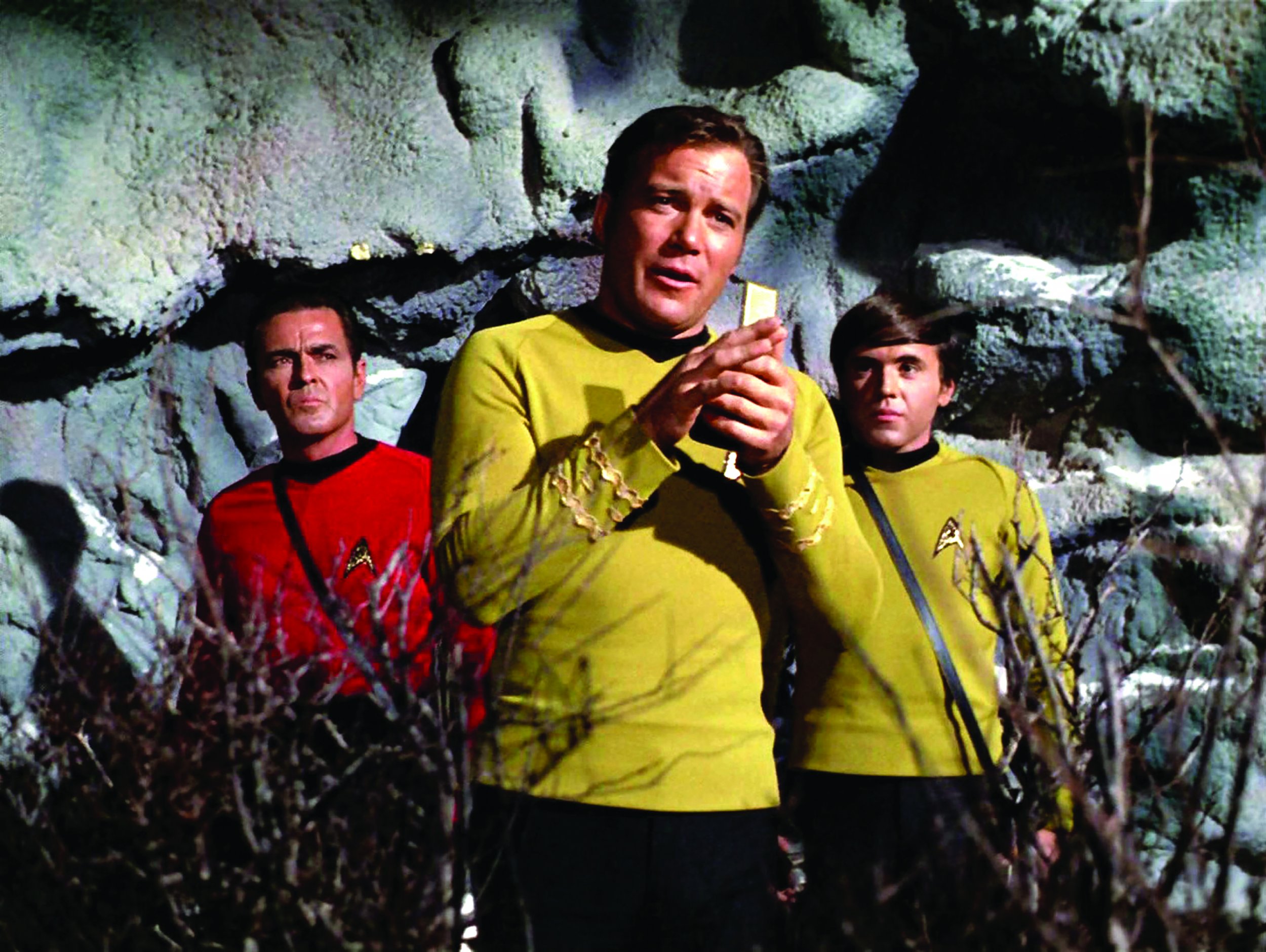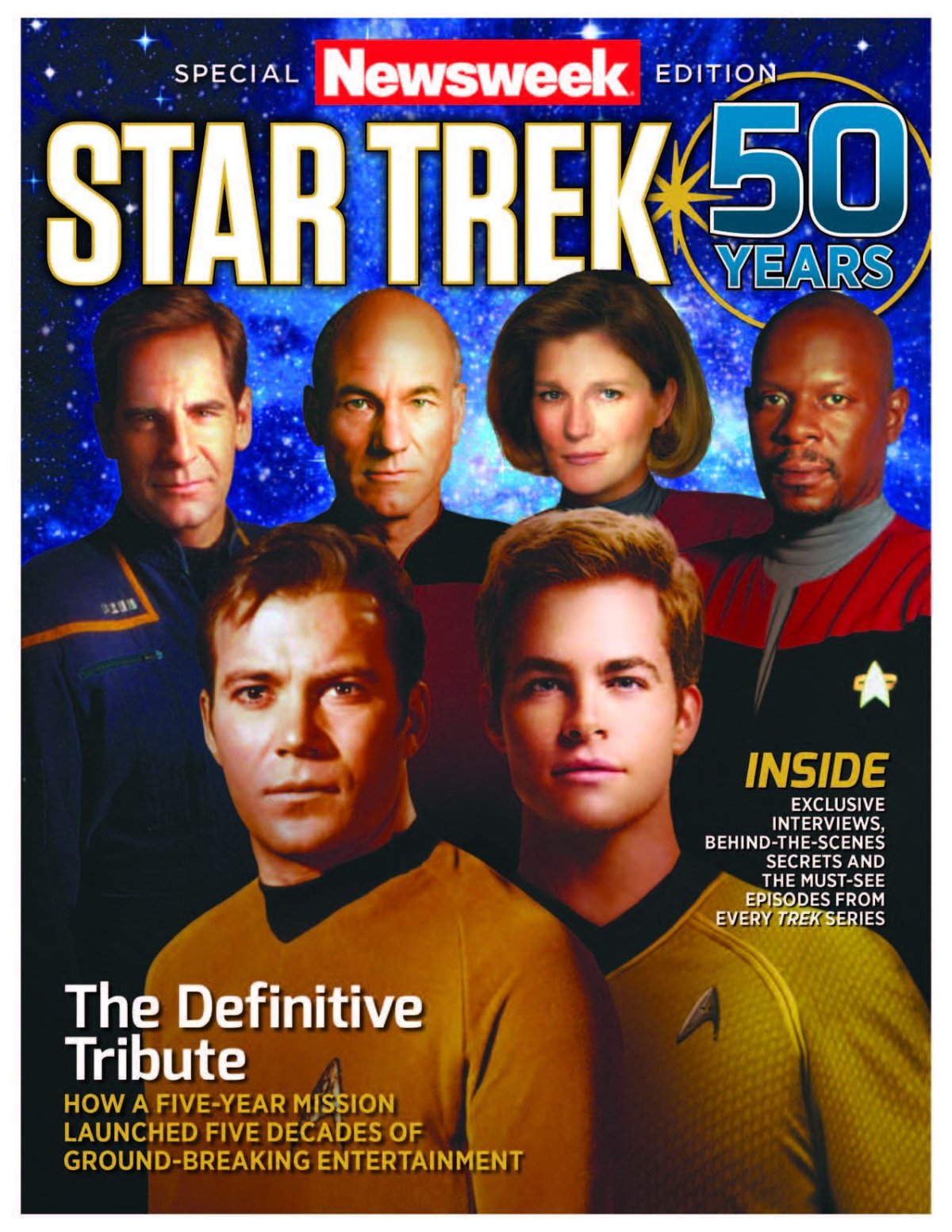
The Star Trek Enterprise's first mission was slated to last five years. Fifty years later, it's living long—and prospering. In a new special edition, Newsweek celebrates 50 years of Gene Roddenberry's legendary sci-fi creation that spawned a movement. This article is excepted from the full issue, Star Trek—50 Years.
Space: the final frontier. Into this silent and endless void glided the USS Enterprise, the flagship of the United Federation of Planets on a five-year mission of exploration. That mission began on September 8, 1966, when Star Trek officially debuted on TV screens across America. But, in the world of the 23rd century, it was stardate 1513.1, and the adventures of James T. Kirk and crew were about to get underway.
The Enterprise's first mission with Kirk as captain, "The Man Trap," set the tone for what would follow during the course of Star Trek's original run. Arriving at a distant planet, Kirk and crew encounter a mysterious creature that survives by extracting the salt from the bodies of its human victims. The catch? The creature's human form is that of the former flame of Leonard "Bones" McCoy, the ship's doctor. The emotional conflict created when McCoy faces the monster wearing his lover's face told viewers this was no ordinary space romp. There was pathos, drama and tragedy as well.
As the series continued, its staff of talented writers, including Richard Matheson, D.C. Fontana, Gene Coon and Harlan Ellison, created stories that dealt with Vietnam ("A Private Little War"), racism ("Let That Be Your Last Battlefield") and religion ("Bread and Circuses"). It broke new ground, starting right in the pilot episode, "The Cage," when captain Christopher Pike asks his female first officer to take command of the ship in his absence. Leonard Nimoy as the half-human, half-Vulcan Spock used his role to explore and shed light on the conflict of being an outsider, making him a hero to many people struggling with their own identities during the turbulent '60s and beyond.
The series wasn't always perfect. The Enterprise was overtaken by a mob of groovy space hippies in "The Way to Eden," and "Spock's Brain" saw the titular Vulcan cope with having his cerebrum swiped. There were also the budgetary concerns plaguing the series for all 79 episodes of its run. Certain episodes were dictated by whatever costumes could be dredged up on the Paramount lot, meaning the Enterprise took detours to planets inspired by everything from the Old West to Nazi Germany. The fact that most of these metaphorically lemon-like diversions didn't go sour is a testament to the lemonade-making abilities of Roddenberry and his staff.
Plus, those who boldly went on the original mission of the USS Enterprise knew that the money wasn't what mattered. At the heart of the series was the bond formed between its crew, particularly Kirk, the passionate man of action, Spock, the logical voice of reason, and Bones, the persistent malcontent. Their unlikely and enduring friendship defined the series, and every incarnation since has tried (with varying success) to replicate it. Witness the heartbreaking ending of "City on the Edge of Forever" when Kirk, having traveled back in time, must let Edith Keeler—the 20th-century woman with whom he's fallen in love—die in order to preserve the future. As Bones attempts to intercede, Kirk stops him, allowing Edith to step in front of an oncoming car. An incredulous McCoy, unaware of the implications, asks a grief-stricken Kirk, "Do you know what you've done?" Somberly, Spock intones, "He knows, Doctor. He knows."
More than a journey to the edge of the galaxy, the original series of Star Trek was a journey inward, an examination of what makes us human—even those of us who sometimes feel half Vulcan.
This article is excerpted from a Newsweek Special Edition, Star Trek—50 Years, by Issue Editor Tim Baker.

Uncommon Knowledge
Newsweek is committed to challenging conventional wisdom and finding connections in the search for common ground.
Newsweek is committed to challenging conventional wisdom and finding connections in the search for common ground.
About the writer
To read how Newsweek uses AI as a newsroom tool, Click here.








